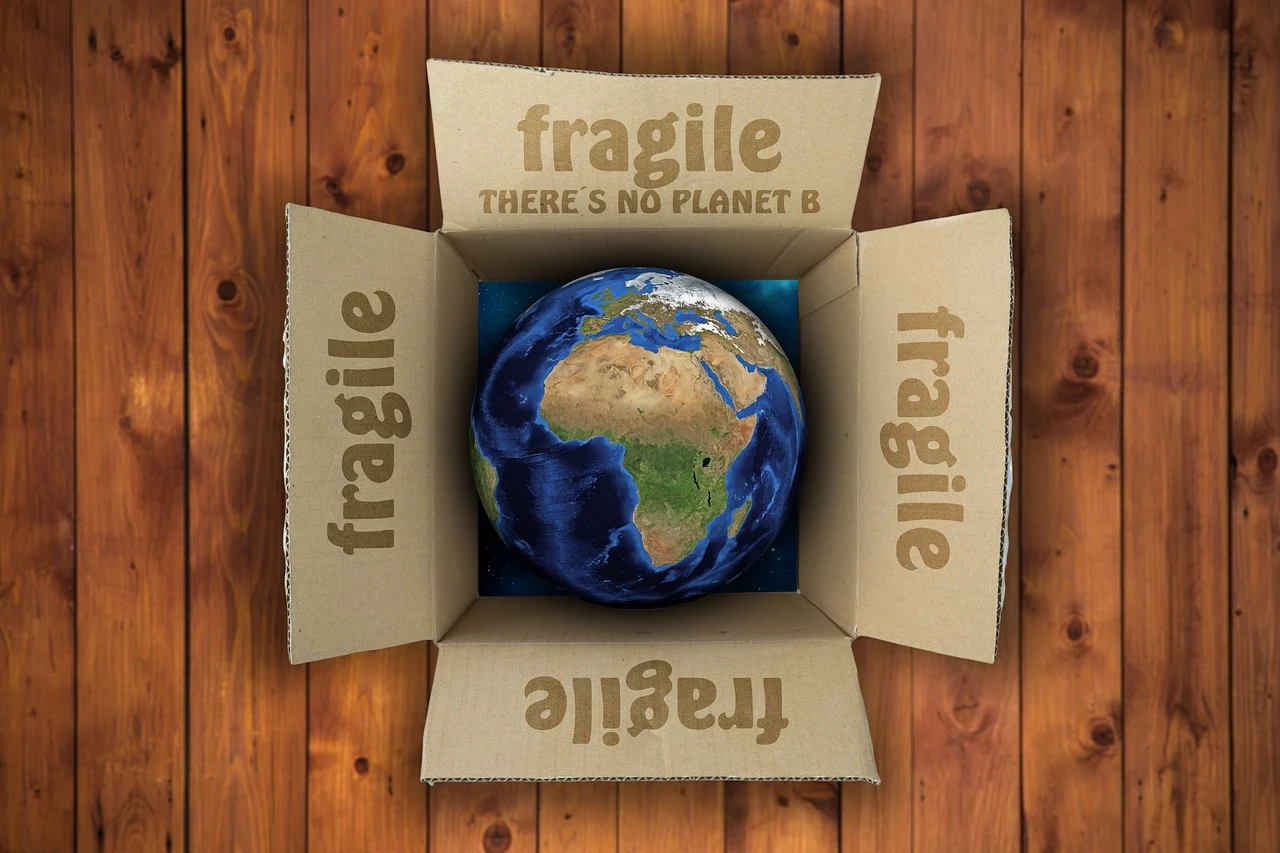Let´s talk about tipping points!
by Svenja Prantl (2005) Gisela-Gymnasium, München/Germany on 2023-08-18

Thanks to geralt from Pixabay for the use of the picture!
Let’s talk about tipping points!
Tick tack
There’s a time bomb among us
We know how to name it
We have an idea on how to defeat it
But do we know where it hides?
In primary school you normally play a lot of games. We crafted dices for geometry, created an A out of clay to learn the alphabet and in language class we had to complete words from single letters to train our memorization. So, let’s jump back into childhood and start off with the letter C.
Personally, I think of chocolate first and climate change second. One way round or another this might be quite representative for society as a whole. As I get the impression there’s a surprisingly high awareness about global warming and our environmental issues, that I can’t help but wonder why on earth so little is done. Certainly, it’s the laziness of humanity, the high costs of change and also the enormous complexity of the problem – nevertheless, I tend to believe there might be an additional reason.
What if we have lost sight of what is actually at stake because while being confronted to the topic through every channel and this for decades now, we have somehow begun to grow too familiar with dangers of climate change. Maybe a thread we’re exposed to on daily basis eventually starts to lose its fright. The ticking sound of the time bomb blends into the general background noise until no one notices it anymore, just like an alarm in the morning you like to ignore, hit the snooze button and then forget about it. So, let’s get out of bed and search for this time bomb at the root of the problem.
Scientists confirm that there are actually several time bombs: the so-called tipping points which mark thresholds of no going back if once exceeded. As soon as the line is crossed, they cause a chain of consequences that cannot be predicted and may destabilise the ecosystem in a very fundamental way.
Paradoxically some of those points, which could accelerate global heating by a lot, can be found at the coldest places in this world. In Greenland, where temperatures in winter can reach -20 degrees Celsius, you’d probably rather wish for some warmth than reckon that the ice-shield is melting faster than ever. If this progress happens to continue even further, the ice shield contains enough water to rise global sea levels by over 6 metres. While this process is likely to happen slowly, it will become more and more self-reinforcing: A reduction in height exposes the ice to even higher temperatures and also the lack of snow leaves behind a darker surface that is heated up way faster. And if it wasn’t already enough: Not only Greenland, also the Antarctic Sea Shield is melting down and its disintegration may be final after certain temperatures are reached. There’s no consent so far at what point this will occur, but some research suggests that the tipping point might be somewhere between 1,5 and 2 degrees Celsius, which is way beyond concerning.
Continuing our search for time bombs we can stay in the colder zones and this time take a look at the soil. The permafrost is a sort of ground that remains frozen for a long period of time and contains a lot of organic carbon. When the soil begins to thaw, microorganisms break it down while releasing CO2 and methane into the atmosphere, both greenhouse gases that are responsible for rising temperatures. Even with a global warming limited to 2 degrees Celsius, which is not what we are heading towards right now, we would loose 40 percent of the worlds permafrost and set free a lot of these gases.
These tipping points are scary not only on their own but especially when they interact with each other and become more dynamic and sudden than expected. This should be our reminder, that climate change is by far not ignorable anymore. Since we have gathered so much knowledge about it and can predict quite sincerely what, where and when thresholds are crossed, wouldn’t we be very stupid to just wait for the catastrophe to happen? Because when an actual bomb was found, no one would suggest to just watch it explode either.



